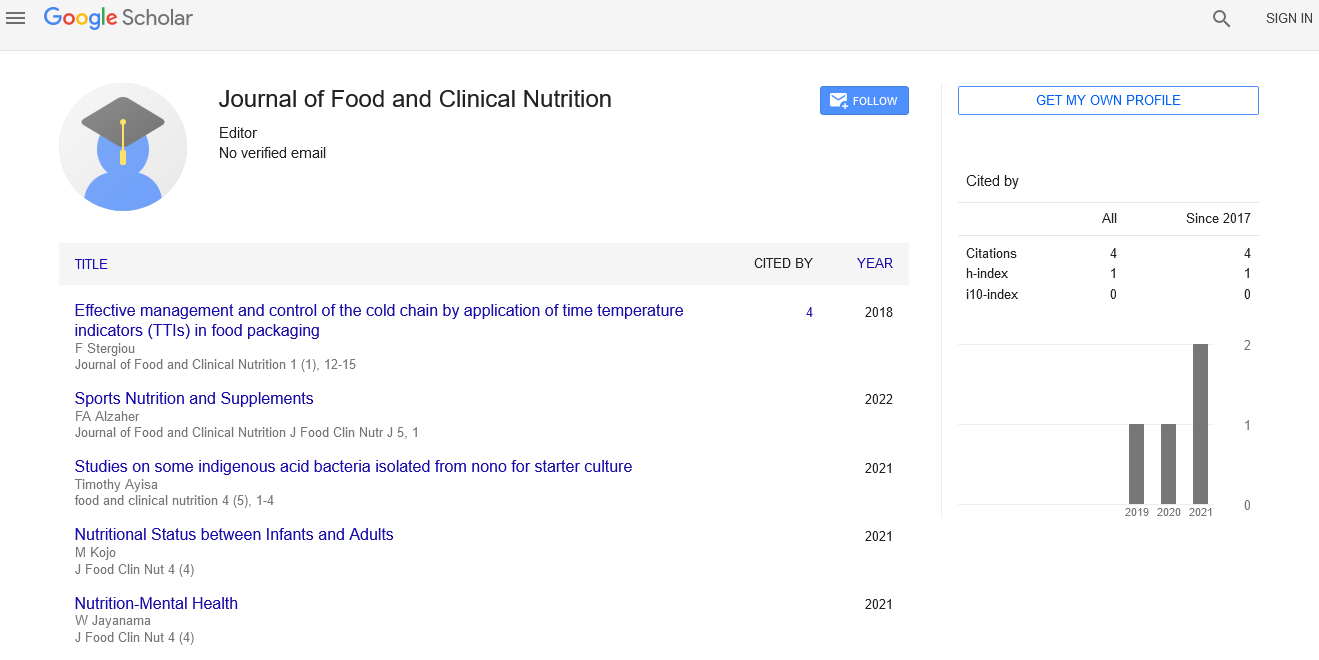
Sign up for email alert when new content gets added: Sign up
The Chilean Diet: Is it sustainable?
3rd Annual Congress on Food Science Nutrition & Women's Health
December 06, 2022 | Webinar
Teresita Gormaz, Gerardo Weisstaub
Catholic University, Chile
ScientificTracks Abstracts: J Food Clin Nut
Abstract :
Food systems are one of the main contributors to climate change. Sustainable diets are one strategy to mitigate climate change. Assessments and estimations at a national level are lacking, especially in the Global South, probably due to a lack of national surveys of food consumption and a limited interest in sustainable diets information. The objective of this study is to estimate and describe the carbon and water footprint of the Chilean population’s diet in an overall estimation desegregated by region, age, sex, socioeconomic level and their main characterizations. This study is based on a secondary data analysis from the National Survey of Food Consumption made in 2010. The carbon and water footprint of the food subgroups/person/day were estimated. The results are compared by sex, age group, socioeconomic level and macro zone. A carbon footprint of 4.67 kg CO2eq and a water footprint of 4177 L, both per person/day, were obtained. Animal-sourced foods, such as dairy and red meat, were responsible for 60.5% of the total carbon footprint and 52.6% of the water footprint. The highest values for both footprints were found in the following groups: men, adolescents, young adults, people with a higher socioeconomic level and residents in the southern area of the country. The carbon footprint and water footprint values in Chile generated by food consumption would be above the world averages. Transforming the Chilean food system into a more sustainable one with changes in eating patterns is urgently required to attain this transformation.
References :
1. Global Panel on Agriculture and Food Systems for Nutrition . Food Systems and Diets: Facing the Challenges of the 21st Century. Global Panel on Agriculture and Food Systems for Nutrition; London, UK: 2016.
2. Tilman D., Clark M. Global diets link environmental sustainability and human health. Nature. 2014;515:518–522. doi: 10.1038/ nature13959.
3. Springmann M., Godfray H.C., Rayner M., Scarborough P. Analysis and valuation of the health and climate change cobenefits of dietary change. Proc. Natl. Acad. Sci. USA. 2016;113:4146–4151. doi: 10.1073/pnas.1523119113.
Biography :
Teresita Gormaz successfully completed the Master of Nutrition and Food by defending her thesis called: "Environmental impact of Chilean food." Her guiding professors were Professor Gerardo Weisstaub, from the INTA Public Nutrition Unit and Professor Sandra Cortés, from the Pontifical Catholic University.




